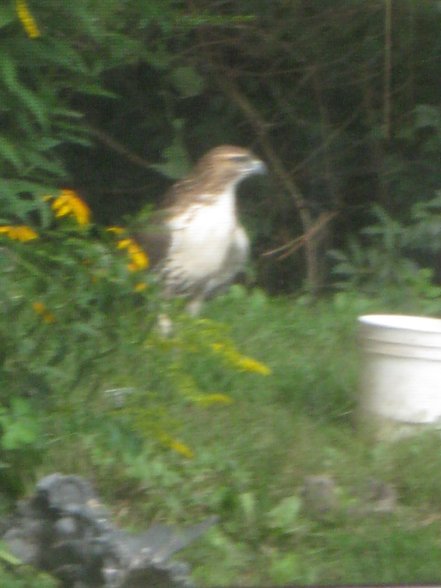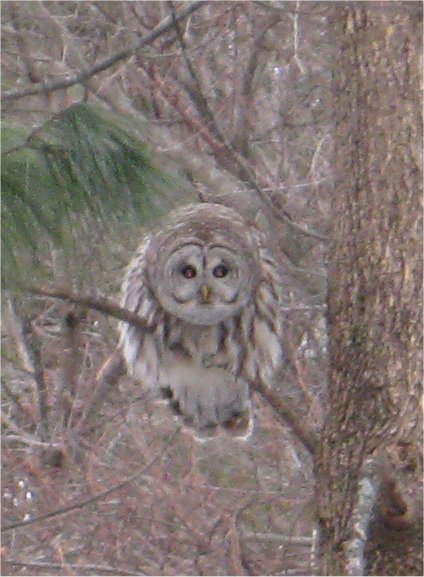Returning from errands, we heard a bright buzzing at the head of our driveway.
If this was a bee making this sound,we were in trouble.
But no, not a bee, only Velda, the Hummingbird moth.
Hummingbird moths aren’t common where we live. For that matter, we’ve seen several species appear that were once unknown in these parts. Some species are opportunistic invaders; they come along in cargo ships, in wooden crates and lumber, they hitch rides with families returning from foreign lands. Some such species take hold, others don’t.
Some once-common species move on, some are moved out, some can’t deal with the invading hordes and die out.
I the past twenty years we’ve seen lots of all of these, and Velda The Hummingbird Moth is only the latest.
As beautiful as she is, she’s an indication that language is powerful.
I suspect if Global Warming and remained Global Warming, Velda would have a tougher time here. Bush II’s administration did an incredible job changing language on us. Global Warming became Global Climate Change; much less threatening, almost something to look forward to, hence off the table, hence Global Warming got pulled from the agenda, pushed aside (much like some species), and (for many) forgotten.
People prefer to stick their heads in the sand, me thinks. No idea why. Taking action is…difficult? Well, it’s definitely more difficult than sitting on one’s couch. More noticeable? Well, anytime you do anything someone will notice. People tend to act only when there’s a personal stake involved. I remember laughing at a “Save the World” rally.
Save the World? You think the Earth will disappear or something? Earth will be here long after we’re gone. Stopping saving the world and start saving yourselves! Earth can get along fine without drinkable water and breathable air. It won’t be an Earth we recognize and it’ll still be Earth, probably a little older and a little wiser than when we first climbed down out of the trees millions of years ago, but it’ll get along fine.
Not so us. Take away our water and air and we’re gone in a few seconds, probably less.
I mean, how long can you hold your breath?
I enjoy Velda in my garden.
Not the news she brings.


